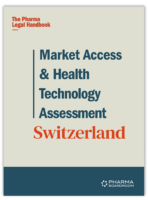Articles
The World Health Organisation has highlighted antimicrobial resistance (AMR) as one of the leading global public health and development threats today. AMR occurs when bacteria, viruses, fungi and parasites change over time and no longer respond to antimicrobial medicines (including antibiotics, antivirals, antifungals and antiparasitics). This makes infections harder to treat and increases the risk of…
Industry stakeholders are raising the alarm about access to innovative medicines in Switzerland. Do delays in market access compared to other countries in Europe not only threaten the health of patients in Switzerland, but the country’s status as a global biopharmaceutical R&D hub? Major Challenges As outlined elsewhere in this report, Switzerland boasts a…
Switzerland is the 22nd biggest country in Europe in terms of population yet plays host to a full 20 percent of the continent’s life science companies, with over 1,000 operational firms. Over 0.5 percent of the entire Swiss population (48,000 out of 8.8 million) work in the life sciences, 67 percent of whom have a…
Intricacy, precision, and quality. These are bywords for Switzerland’s world-renowned watchmaking industry, but which could equally apply to its biopharmaceutical manufacturing footprint. As with top-end models from Rolex, Tag Heuer, or Breitling, made-in-Switzerland pharmaceuticals do not necessarily come cheap, but the country’s network of life science manufacturers seem content that their products more than justify…
Switzerland is a highly decentralised nation where much of the decision-making power lies within individual Cantons and where the Federal presidency is rotated annually. To consistently keep industry interests on the national agenda against this backdrop, a dense network of well-resourced and highly sophisticated professional associations has evolved in Switzerland. These organisations’ advocacy work extends…
Switzerland’s healthcare system is globally renowned. It leads the world on metrics such as infrastructure, medical advances, and patient freedom to choose healthcare services, and ranks 1st in US thinktank FREOPP’s 2022 World Index of Healthcare Innovation. However, it lags in one key area: digitalisation. On that front, Switzerland has more in common with poorer…
Switzerland has a vital role to play in global health, especially in the world’s poorest countries. Indisputably the global capital for health and humanitarian work, its political neutrality, central European location, economic stability, and quality of life have helped foster a dense network of UN agencies, NGOs, and private sector leaders. Geneva alone plays home…
As home to much of Europe’s innovative medicine output and as one of its wealthiest nations per capita, Switzerland has not traditionally been a generic-friendly market. Generics prices are relatively high in a European context and only accounted for 14 percent of total drug sales in 2022. Nevertheless, in recent years the Swiss health authorities…
Although the global biotech sector is currently struggling with equity and debt financing, Swiss biotech is on the up. 2023 saw the Swiss biotech sector hit record revenues of CHF 7.3 billion (EUR 7.8 billion) with capital investments surpassing CHF 2 billion. While funding inflows still did not reach the levels seen during the extraordinary…





















































